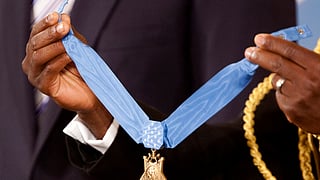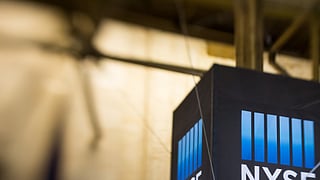India’s electric two-wheeler makers are battling it out hard as the race for the top spot of this nascent yet quickly growing industry intensifies.
Even as the entry of multiple companies, attracted by the huge market opportunity, has made the segment crowded, there are only a few strong contenders. As a result, the churn at the top is deep.
Ola Electric Mobility, an arm of the ride-hailing company, sold the highest number of two-wheelers in the first quarter ended June. Its sales nearly doubled over the preceding quarter to 27,800 units, data from the Federation of Automobile Dealers Associations showed. The company wasn’t even selling its products last year, and rose to the top spot overcoming concerns of fires.
Naveen Munjal’s Hero Electric Pvt. Ltd., a market leader as of March, has slipped to the fourth place. Its sales fell 43% sequentially to 15,900 units in the quarter ended June.
"The drop in sales was a planned halt due to the supply chain issue impacting the entire automotive industry globally," Sohinder Gill, chief executive officer at Hero Electric, said in a statement. The production has stabilised, and the company is poised to meet the growing demand via support from Mahindra & Mahindra Ltd.'s Pithampur plant and the upcoming production line in Ludhiana, he said.
The shake-up at the top highlights the explosive growth in demand for electric two-wheelers as prices of fuel and upfront cost of ownership of conventional scooters and motorcycles shot up. In the last fiscal, battery-powered scooter sales surged fivefold.
Ola Electric and Okinawa Autotech are the only two manufacturers that have been able to sell electric two-wheelers at the same scale.
Ampere Vehicles is at a distant third at 18,900 units in the first quarter, 27% higher than three months prior.
Ather Energy, one of the oldest electric scooter makers, was able to sell just 9,576 units, yet managed to make it to the top five.
Ather Energy didn’t respond to BQ Prime's emailed queries.
“Who’ll end up leading the race? It’s still not clear because there’s some heavy push from Ather with the launch of new iteration of its electric scooter 450X,” Suraj Ghosh, director mobility at S&P, told BQ Prime.
In this jostling, some manufacturers may perish as there will be consolidation in the industry in the next two years, industry executives told BQ Prime. More so as traditional two-wheelers makers too make an aggressive push.
Giants On The Prowl
The legacy two-wheeler makers have announced investments of their own. TVS Motor already sells iQube scooters, Bajaj Auto Ltd. has brought back the iconic ‘Chetak’ in electric version, and Hero MotoCorp Ltd. is preparing to launch its scooter in the festival season under the ‘Vida’ brand.
Sales of electric scooters from conventional companies have been lower than pure-play peers. Yet, they can't be ignored.
Conventional two-wheeler makers are starting to turn aggressive on EVs and learning a lot of things at the expense of startups, Hemal Thakkar, director transport, logistics and mobility at Crisil, said. Strong networks and brand names will more than make up for their delayed entry, he said.
The momentum is increasing the size of the nascent industry. But it has run into bumps.
“We’re seeing a decline in walk-ins and waiting periods after the fire incidents and people are asking uncomfortable questions to dealers, which they don’t know how to answer,” Thakkar of Crisil said.
If the government report on the fire incidents points out a quality issue, the companies may find it hard to gain back the consumers’ trust, he said.
Challenges Abound
While the industry has enough installed capacity to quickly scale up production, the real challenge is sourcing of crucial parts such as lithium-ion batteries and the cells that go into them.
“Sourcing of batteries is one of bottlenecks in the whole supply chain and it’s pretty public that we heavily rely on imports for them,” Ghosh of S&P said. And as the scale is tiny compared with global markets, domestic companies do not have much leverage over suppliers to ensure sufficient availability of batteries, he said.
Recent fires triggered by overheated batteries have also shaken consumer faith in electric scooters. Electric scooters of Ola Electric, Pure EV, Hero Electric, Ampere Vehicles and Okinawa Autotech caught fire earlier this year, prompting the government to initiate an investigation.
The recent fire incidents were unfortunate for the industry's growth and raise concern over customer safety, Hero Electric's Gill said. "Even though they didn't hurt demand for our vehicles, these rare incidents have made companies like us revisit their designs and chemistries to work on improvements or add safeguards functions to avoid such happenings," he added.
Sales may have also fallen due to the lean period generally observed after May till the start of festival period, which begins with Navratri.
“It was expected the electric two-wheelers would not witness the lean period given the low availability of such vehicles, but now, it seems the trend is not much different from the conventional vehicles,” Vinkesh Gulati, president of the Federation of Automobile Dealers Associations, told BQ Prime.
After the fire incidents, there was some initial fear in customers but the government orders and assurances of safety from two-wheeler makers have improved the situation, even though some concerns remain, he said.

 RECOMMENDED FOR YOU
RECOMMENDED FOR YOU





